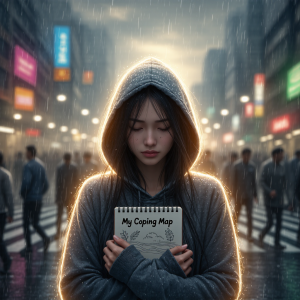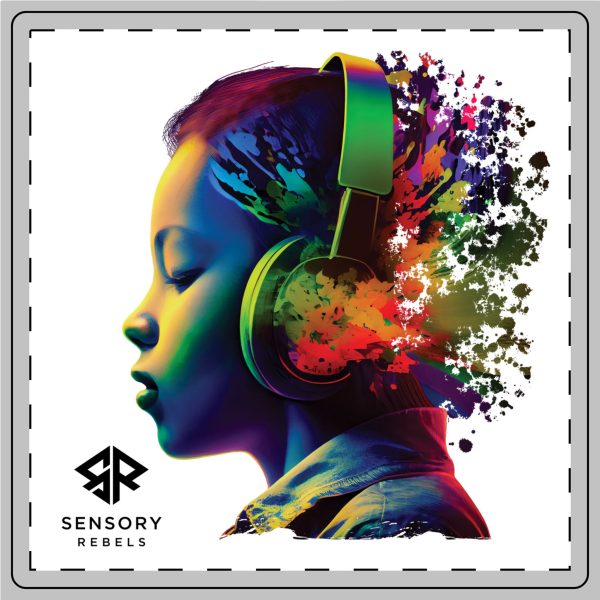No products in the cart.
Return To ShopIntroduction: Envisioning Autism’s Future
As autism diagnosis rates climb, questions about the future of autism and neurodivergence spark lively discussions among autistic adults. Inspired by a thought-provoking conversation in an online community, where an individual awaiting an autism evaluation pondered whether neurodivergence might become the “norm” in a decade, this post explores the implications of rising diagnoses, the diversity of autistic experiences, and the societal changes needed for true inclusion. Could autism diagnoses become so common that they’re no longer exceptional? Let’s dive into these ideas and what they mean for autistic adults and their allies.
“With autism diagnoses on the rise, could neurodivergence become the norm? Let’s explore.”
🧠
#AutismFuture #Neurodiversity
The Rise in Autism Diagnoses
The individual in the online discussion noted the increasing number of autism and other neurodivergent diagnoses, wondering if this trend might normalize neurodivergence. This observation aligns with data showing autism prevalence has risen from 1 in 150 children in 2000 to 1 in 36 in 2020, with adult diagnoses also growing due to better awareness.
Why Are Diagnoses Increasing?
Community members highlighted several factors driving this trend:
- Better Awareness: Improved understanding of autism, especially in adults, women, and those with subtler traits, has led to more diagnoses.
- Broader Criteria: Diagnostic criteria have expanded to include a wider range of presentations, capturing more individuals.
- Self-Identification: Online communities and media representation empower adults to recognize autistic traits and seek evaluations.
- Co-occurring Conditions: Diagnoses like ADHD, often overlapping with autism, prompt further exploration of neurodivergence.
“Autism prevalence has risen from 1 in 150 to 1 in 36 in two decades, reflecting better awareness.”
📈
#AutismStats #Neurodiversity
The Spectrum’s Diversity: Disability vs. Difference
The discussion revealed a spectrum of perspectives on autism itself. The original poster, awaiting an evaluation and diagnosed with ADHD, suggested neurodivergence is part of the human condition, while others emphasized autism’s disabling aspects for some. A community member, identifying as disabled due to autism and trauma, compared the spectrum to varying degrees of injury—some manage with minimal support, others need extensive accommodations.
Autism as a Disability
For many, autism is a disability requiring significant support. Challenges include:
- Sensory overload impacting daily functioning.
- Executive functioning difficulties, like organizing tasks or managing time.
- Social barriers leading to exclusion or misunderstanding.
- Autistic burnout from masking or societal pressures.
“For some, autism is a disability needing support, not just a difference.”
🛠️
#AutismSupport #Neurodivergent
Autism as a Difference
Others view autism as a neurological difference, with strengths like:
- Deep focus and expertise in special interests.
- Unique problem-solving and creative thinking.
- Authenticity and direct communication.
The discussion highlighted that both perspectives are valid, reflecting autism’s diverse impact. A successful autistic lawyer mentioned in the community exemplified how some thrive without significant disability, while others face profound challenges.
Could Neurodivergence Become the Norm?
The original poster speculated that in 10 years, most people might identify as neurodivergent, potentially making diagnoses less relevant. Community responses were mixed, with some hopeful about normalization and others skeptical due to persistent societal biases.
Possibilities for Normalization
- Increased Acceptance: Growing awareness could reduce stigma, making neurodivergence a celebrated aspect of human diversity.
- Workplace Inclusion: More companies adopting neurodivergent-friendly policies, like flexible hours or sensory-friendly spaces.
- Educational Shifts: Schools adapting curricula to accommodate diverse learning styles.
“Could neurodivergence become the norm in a decade? Inclusion is the key.”
🌍
#NeurodiversityFuture #AutismInclusion
Challenges to Normalization
Skeptics in the discussion pointed out barriers:
- Persistent Bias: One member noted that even after overcoming other prejudices, society may still marginalize those whose brains work differently.
- Resource Gaps: Limited access to adult autism services, with diagnostic waitlists up to 5 years.
- Misconceptions: Frustration with comments like “everyone’s a little autistic” trivializes the condition’s impact.
Shaping an Inclusive Future
The online discussion emphasized that the future of autism depends on collective action. Community members suggested steps to create a more inclusive world for autistic adults.
Practical Steps for Inclusion
- Advocacy: Push for policies supporting neurodivergent needs, like accessible healthcare and workplace accommodations.
- Education: Share resources like Neurotribes by Steve Silberman to increase public understanding.
- Community Building: Foster online and offline spaces where autistic adults can connect without judgment.
- Self-Advocacy: Encourage autistic individuals to embrace their needs and strengths, whether through diagnosis or self-identification.
“An inclusive future for autism starts with advocacy and understanding.”
🤝
#AutismAdvocacy #Neurodiversity
Addressing Misconceptions
The community expressed frustration with oversimplifications, like assuming everyone is “a little autistic.” They advocated for nuanced conversations that respect autism’s complexity and the lived experiences of those on the spectrum.
Systemic Barriers to Progress
The discussion also highlighted systemic challenges that must be addressed:
- Diagnostic Access: High costs ($1,500–$5,000) and long waitlists limit adult diagnoses.
- Limited Support: Few services focus on autistic adults, leaving many without resources.
- Societal Ableism: Stereotypes and biases hinder acceptance and accommodations.
$1,500–$5,000
Autism diagnoses cost this much, blocking many from answers. Access must improve!
Conclusion: A Hopeful yet Realistic Future
The future of autism is a topic of hope and complexity, as the online discussion revealed. Rising diagnosis rates suggest neurodivergence could become more visible, but true normalization requires dismantling barriers and embracing autism’s spectrum—from those who thrive independently to those needing significant support. By advocating for inclusion, educating others, and building communities, autistic adults can shape a world where neurodivergence is understood and valued. Whether or not it becomes the “norm,” the goal is a society where every autistic individual can live authentically.
If you’re curious about autism’s future, join the conversation in online communities, explore resources, and advocate for change. Together, we can build a more inclusive tomorrow.
“The future of autism depends on us—let’s create a world where neurodivergence thrives.”
💙
#AutismPride #Neurodiversity
Related posts
Introduction: Questioning Neurodivergence For many adults, the question “Am I autistic?” arises after years...
Introduction: The Complexity of Autistic Communities Autistic communities, particularly online, are vital spaces for autistic...
Introduction: The Challenge of Autistic Burnout Autistic burnout is a harsh reality for many autistic...
Introduction: When Burnout Meets Life Crises Autistic burnout is a profound challenge for many autistic...
Introduction: The Weight of Autistic Burnout For many autistic adults, the transition into a new...

















Add comment
You must be logged in to post a comment.